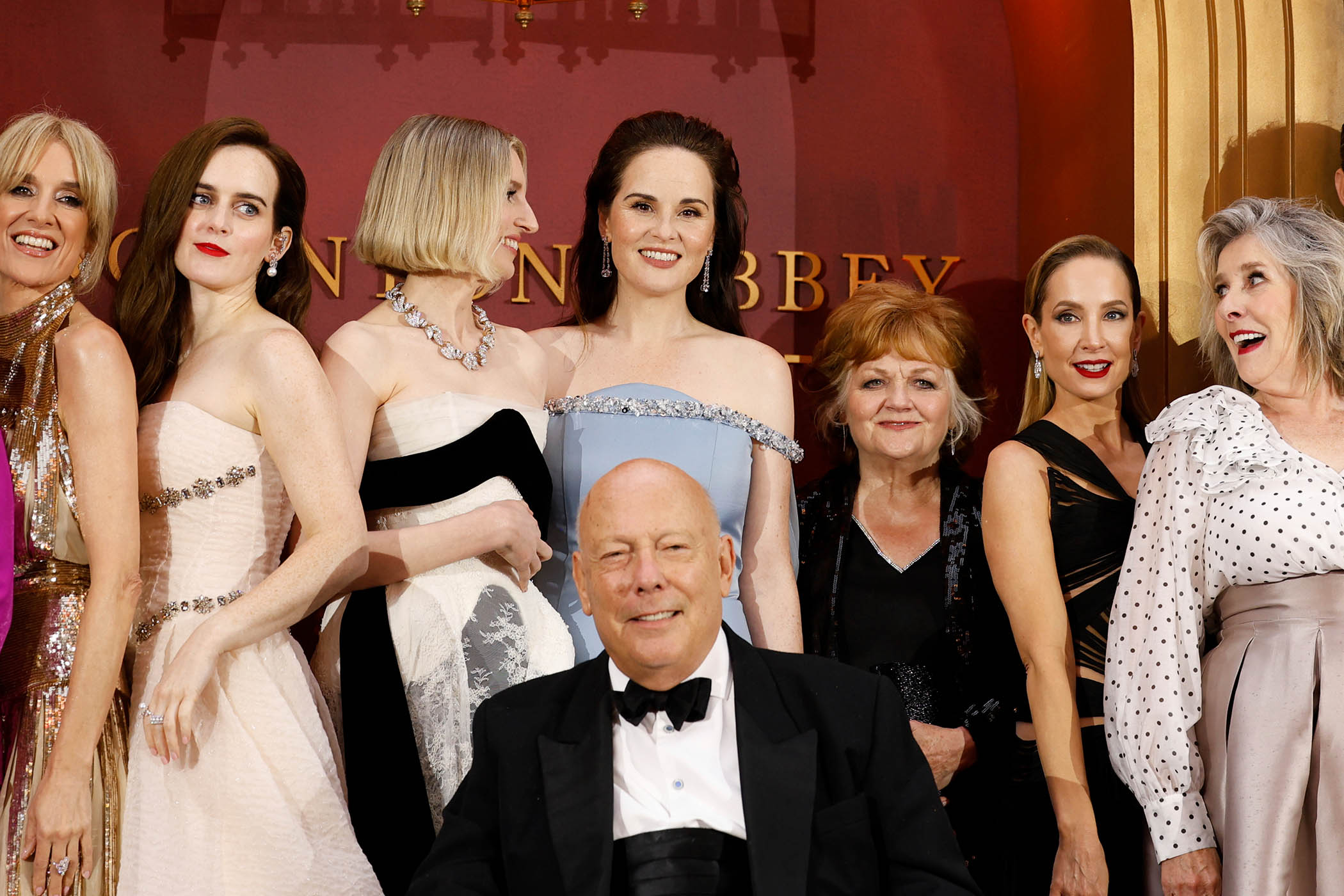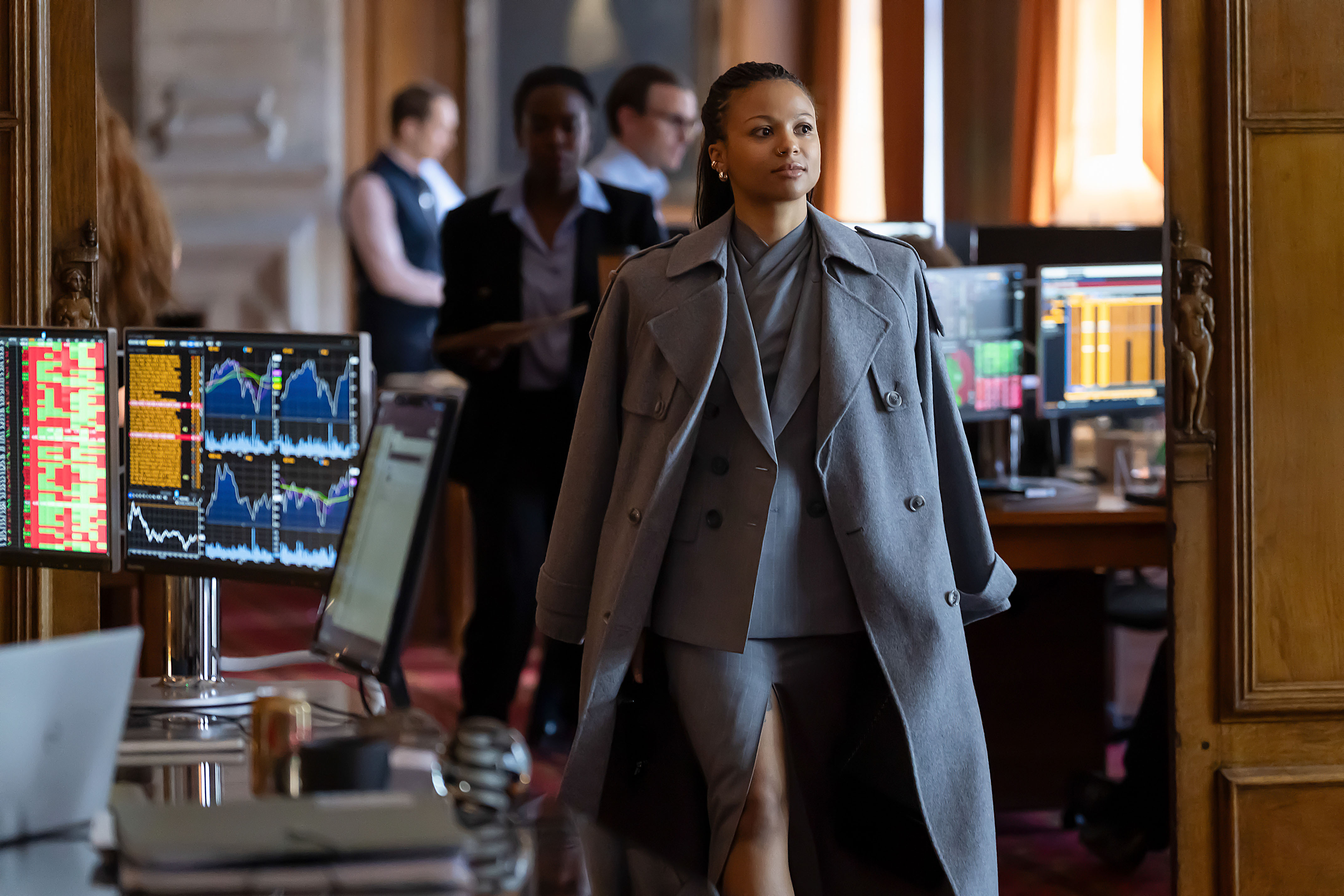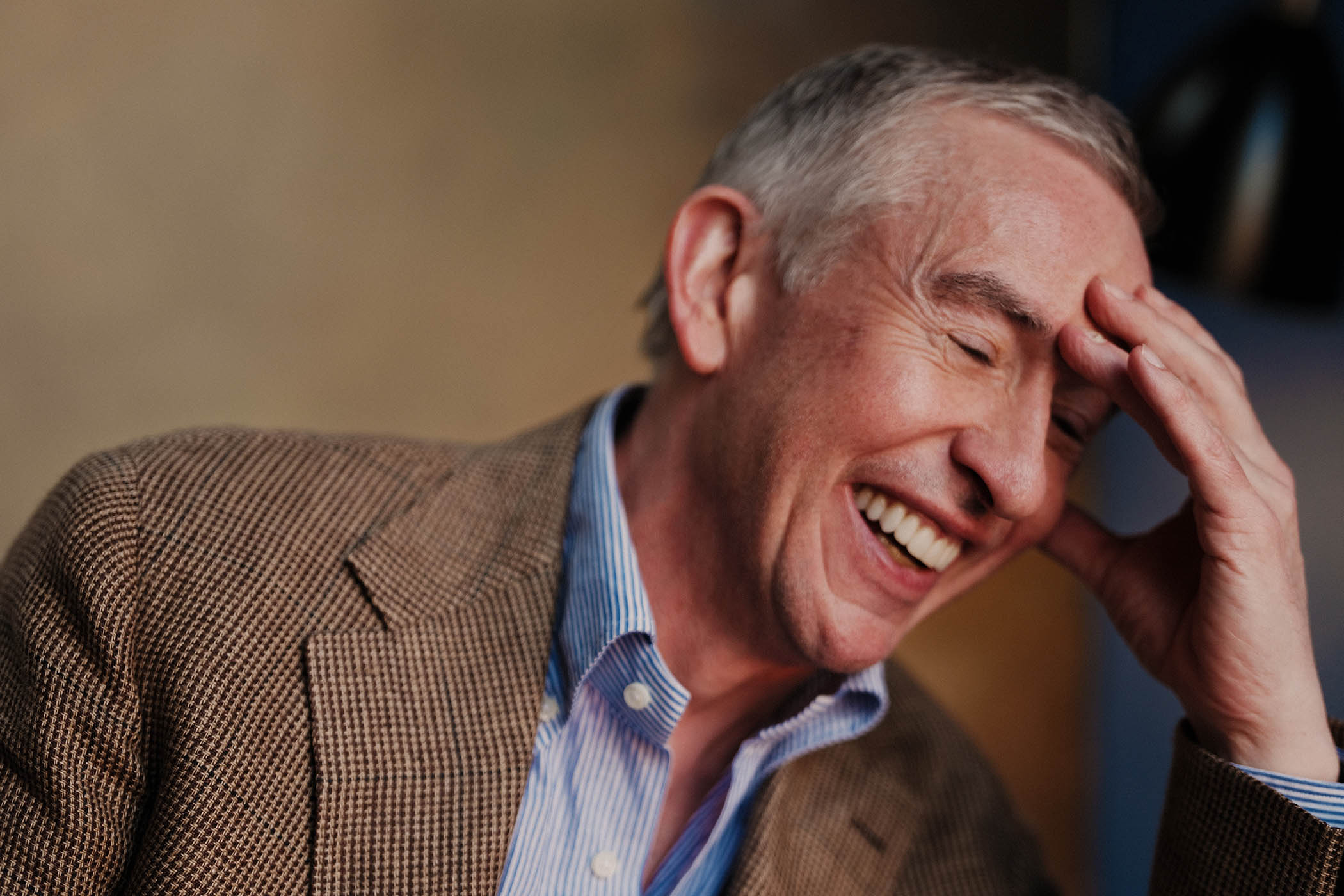Steady your pince-nez. Julian Fellowes – the creator of Downton Abbey (the final instalment of which is now showing in cinemas) – has decried the British proclivity for scorning the great and good, comparing it unfavourably to attitudes in the United States.
Fellowes, pictured with the Downton Abbey cast, says: “Britain has this curious double standard of hating the rich, and hating anyone who has been very successful, and yet wanting it.” He calls it “ungenerous not to admire people who have done well”. He adds that when he was a struggling actor and met a movie star: “I’d think: ‘Good luck to them.’”
Intriguing that Fellowes restricts his argument to actors and movie stars. Not that actors don’t struggle – especially in these arts-funding-strapped times – but other metrics of socioeconomic hardship are available. If Tory peer Fellowes knows any ordinary Brits, he’d have noticed they’re constantly having a pop, and not just at the prosperous. It’s called conversation, humour, even the dreaded banter: a socioemotional safety valve that operates far beyond envy.
As for “hate”, that’s a serious word, not to be deployed unwisely. Does Fellowes believe that rich, successful people are hated? Or does he mean wealth and success aren’t as blindly venerated in Britain as they are, say, in the US? Is that truly such a terrible thing?
On to the new TikTokracy. A digital mock-up has been developed by casino.org of what influencers are likely to evolve into, should their habits remain unchecked by the year 2050.
At first glance, the image resembles Lara Croft with crippling cystitis. The content creator of the dystopian future, called “Ava”, is depicted with a hunched back (all that crouching over her phone). Her lips and breasts are engorged from adhering to unrealistic beauty standards. A pointed witch’s chin is a result of overcorrected plastic surgery; traction alopecia from hair extensions. Ava, christened the “Hunchback of Instagram” by the New York Post, has eyes wrecked by screen-glare, while her visage is blotchy from digital ageing and too many skin products.
A portent of filter-Armageddon indeed. And maybe just a teensy-weensy bit sexist, what with Ava standing there, all hunched and ruined like the original tech-crone cautionary tale.
When do we get to see what male influencers are going to look like by 2050? Even if you exclude the manosphere Darth Vader himself, Andrew Tate, internet-himbos are legion. Why are the doomed and damned of the 50-watt ring-light automatically presumed to be women?
Related articles:
Not all tech is evil. Avocado scanners are being trialled in some Tesco supermarkets. The gadget, called the OneThird Avocado Scanner, employs infra-red technology to assess the ripeness of the fruit, because squeezing it with your fingers is clearly too complicated and tiring for people.
The scanner has two settings. One announces the avocado is ready for smashing onto toast, transforming the humble brunch – a sprinkle of chilli flakes! A squirt of lemon! – into a modish food-fair delicacy. The second deems the avocado firmer for slicing. May I suggest a third “rock-freaking-hard” setting: indicating the fruit should be popped on a windowsill to be forgotten about and rot, spewing creepy tiny flies at an unspecified point in the future.
Newsletters
Choose the newsletters you want to receive
View more
For information about how The Observer protects your data, read our Privacy Policy
This is about the ongoing flex of the avocado (bananas don’t get a scanner). Fifteen million avocados were sold by Tesco alone in 2024, despite ethical concerns over water usage and carbon footprints. Cynics may perceive it as a millennial/gen Z sop; a retail-genuflection to youthful tastes. But who isn’t up for some avo-scanning?
Whatever your viewpoint, this has to be a contender for the most middle-class thing ever to happen in Britain.
Photograph by Millie Turner/Invision, AP



